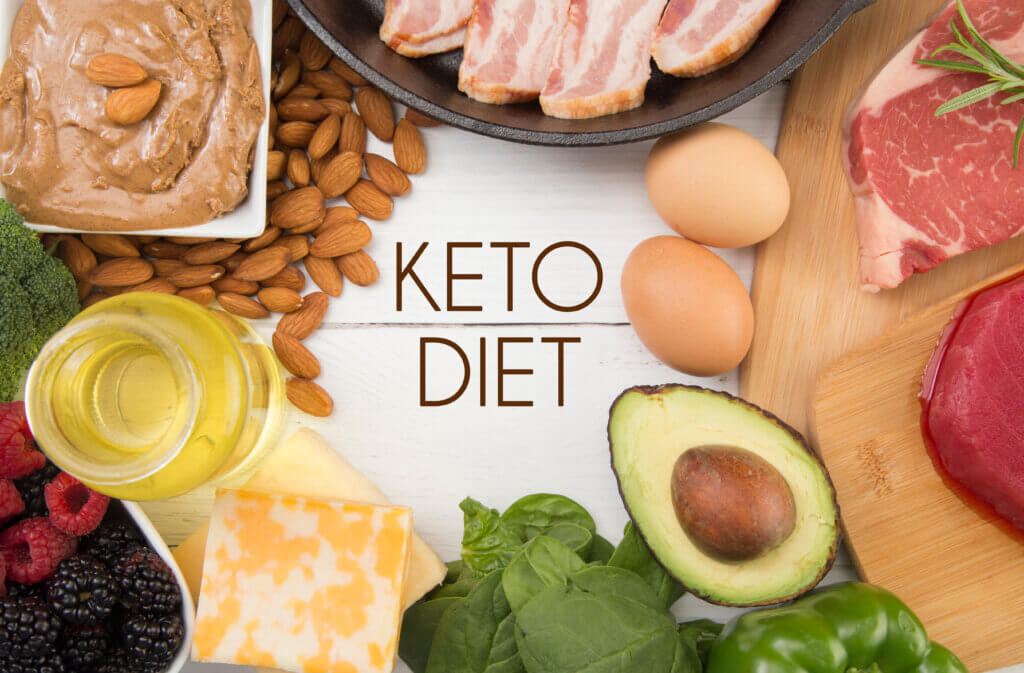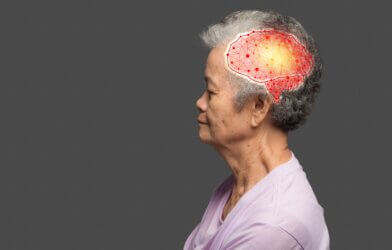A popular diet could play a role in preventing neurodegenerative diseases. Researchers from the University of California-Davis suggest that a high-fat, low-carbohydrate ketogenic (keto) diet could help preserve memory and brain function in mice with Alzheimer’s-like symptoms. The findings are published in the journal Communications Biology.
Alzheimer’s disease, the most common form of dementia, is characterized by a progressive decline in cognitive function and the accumulation of abnormal proteins in the brain. While current treatments can temporarily alleviate symptoms, there is no cure for this devastating condition.
Enter the keto diet. Originally developed in the 1920s to treat epilepsy, this high-fat, low-carb eating plan has gained popularity in recent years for its potential health benefits, including weight loss and improved blood sugar control. Now, researchers are investigating whether it could also protect the brain against Alzheimer’s.
Here are some foods that are commonly consumed by followers of the keto diet:
- Meat: Beef, pork, lamb, chicken, turkey, etc.
- Fish and seafood: Salmon, trout, tuna, mackerel, shrimp, etc.
- Eggs
- Low-carb vegetables: Spinach, kale, broccoli, cauliflower, zucchini, bell peppers, etc.
- High-fat dairy: Butter, cream, cheese (especially hard cheeses)
- Nuts and seeds: Almonds, walnuts, chia seeds, pumpkin seeds, etc.
- Healthy oils: Olive oil, avocado oil, coconut oil
- Avocados
- Berries: Strawberries, raspberries, blackberries (in moderation due to carb content)
- Sugar-free sweeteners: Stevia, erythritol, monk fruit sweetener
- Full-fat yogurt and cottage cheese (in moderation)
- Dark chocolate and cocoa powder (in moderation, choose high cocoa content)
- Low-carb flours: Almond flour, coconut flour
Keep in mind that the keto diet severely restricts carbohydrate intake, so high-carb foods like grains, legumes, potatoes, sugary drinks, and most fruits should be avoided or extremely limited.
In the study, mice genetically engineered to develop Alzheimer’s-like symptoms were fed either a standard diet or a keto diet for seven months. The keto diet contained 90 percent of its calories from fat, with very few carbohydrates.
UC Davis researchers found that the keto diet significantly improved the mice’s performance on memory tests, restoring their brain function to levels similar to those of healthy mice. This effect was not due to a reduction in the accumulation of amyloid-beta, the protein that forms the hallmark plaques in the brains of Alzheimer’s patients.
How did the diet work its magic? The key may lie in a molecule called beta-hydroxybutyrate, or BHB. When the body is deprived of carbohydrates, as it is on a keto diet, it begins to break down fat for fuel, producing ketones like BHB. Researchers found that BHB levels were significantly higher in the blood of mice on the ketogenic diet.
When UC Davis researchers directly applied BHB to brain slices from Alzheimer’s mice, they saw a similar improvement in brain function as they did with the ketogenic diet. This suggests that BHB itself may be responsible for the diet’s beneficial effects.

“We observed amazing abilities of BHB to improve the function of synapses, small structures that connect all nerve cells in the brain. When nerve cells are better connected, the memory problems in mild cognitive impairment are improved,” says co-corresponding study author Izumi Maezawa, professor of pathology in the UC Davis School of Medicine, in a media release.
But the story doesn’t end there. Researchers also analyzed the genetic activity in the brains of the mice and found that the keto diet activated a host of genes related to synaptic plasticity – the ability of neurons to strengthen or weaken their connections in response to experience. This is crucial for learning and memory.
“The data support the idea that the ketogenic diet in general, and BHB specifically, delays mild cognitive impairment and it may delay full blown Alzheimer’s disease,” says co-corresponding study author Gino Cortopassi, a biochemist and pharmacologist with the UC Davis School of Veterinary Medicine. “The data clearly don’t support the idea that this is eliminating Alzheimer’s disease entirely.”
Further experiments revealed that the diet boosted the activity of key proteins involved in synaptic plasticity, such as ERK and CREB. In female mice, it also increased levels of BDNF, a protein that supports the growth and survival of neurons.
Researchers propose that by providing an alternative fuel source in the form of ketones, the keto diet may help struggling neurons in the Alzheimer’s brain to survive and function better. The activation of synaptic plasticity pathways may further enhance this effect.
The benefits of the keto diet appeared to be most pronounced in the early stages of Alzheimer’s progression in the mice, analogous to the mild cognitive impairment stage in humans. This suggests that dietary interventions may be most effective when started early.

Of course, mice are not humans, and much more research is needed before the ketogenic diet can be recommended as a treatment for Alzheimer’s. The high fat content of the diet also raises concerns about its long-term safety and tolerability.
Nevertheless, the study opens up exciting new avenues for Alzheimer’s research. The idea that a simple dietary change could enhance brain function in Alzheimer’s is tantalizing, and the involvement of BHB suggests that ketone supplements could potentially offer similar benefits.
While the keto diet may not be for everyone, the study is a reminder that what we eat can have a powerful impact on our minds. As research into Alzheimer’s prevention and treatment continues, a brain-healthy diet is looking like an increasingly important piece of the puzzle.












